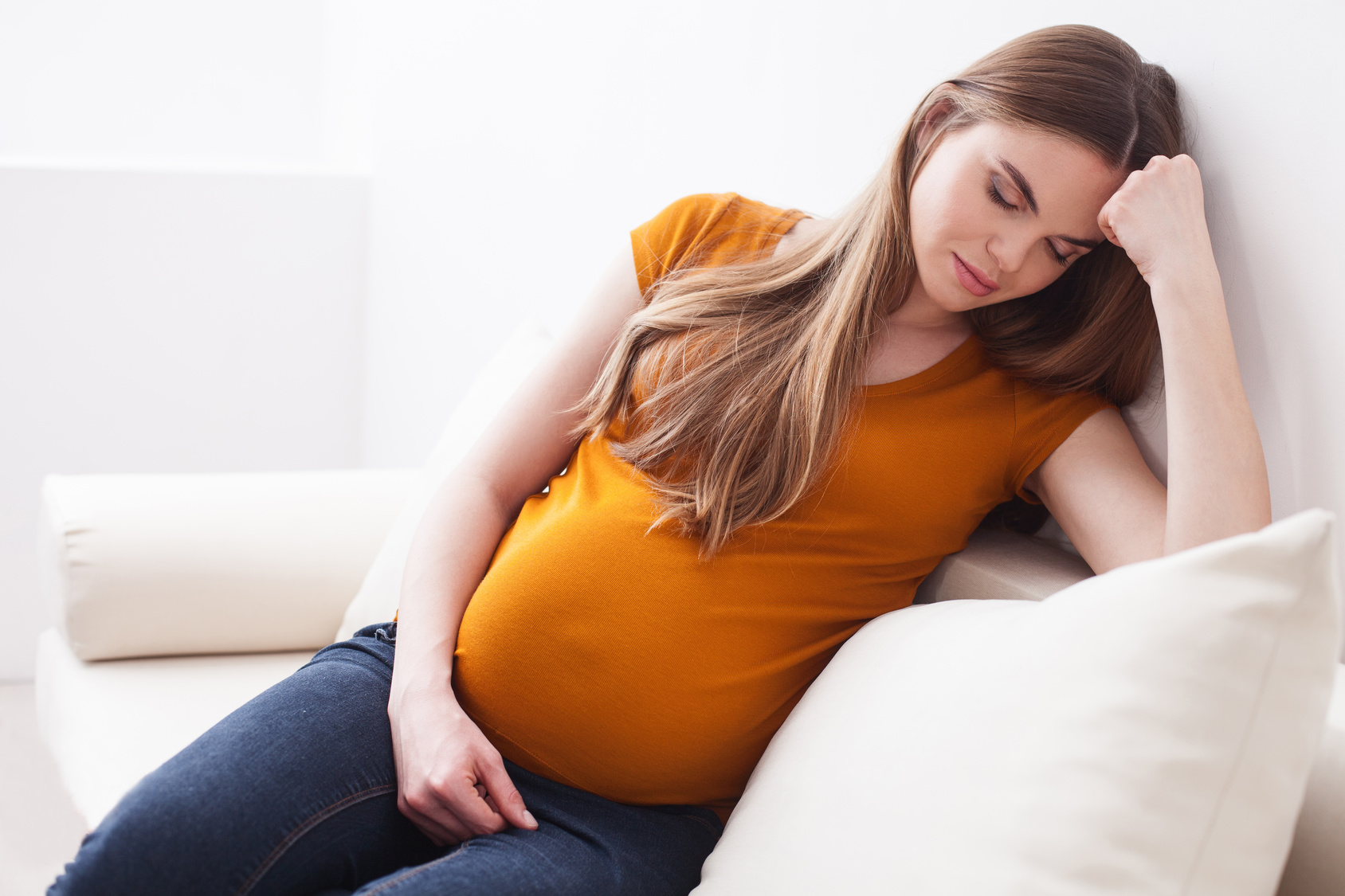While the majority of pregnant women experience nausea and/or vomiting during the first trimester of pregnancy, a smaller subset of women — around 1% — experience more severe and intractable vomiting, or hyperemesis gravidarum (HG). If left untreated, prolonged hyperemesis can lead to weight loss, dehydration, nutrient deficiencies and electrolyte disturbances.
We do not fully understand what causes hyperemesis gravidarum. It is thought that it may be triggered in some women by the sharp rise in pregnancy-related hormones, specifically human chorionic gonadotropin or HCG; however, other theories persist.
Early studies of HG questioned whether certain psychological variables may render women more vulnerable to HG, and some have gone so far as to conceptualize HG as a psychosomatic illness, where symptoms of nausea and vomiting emerge as a result of underlying psychological or emotional issues.
If you look at women suffering from HG, they commonly report anxiety and depressive symptoms. According to a recent prospective study including 78 pregnant women with HG and a control group of 82 healthy pregnant women without HG (Aksoy et al, 2015), 42 (53.9%) of the women with HG had moderate or severe depressive symptoms (as measured using the Beck Depression Inventory), as compared to only 6.1% of the women in the control group.
So does this study indicate that women with depression are more likely to develop HG? Or do these findings demonstrate that depression is a consequence of HG? That question was asked by Kjeldgaard and colleagues (2017), who analyzed data from The Norwegian Mother and Child Cohort Study which included a total of 731 pregnancies affected by HG and 81,055 pregnancies without HG. A lifetime history of depression was associated with higher odds for hyperemesis gravidarum (OR = 1.49); however, only 1.2% of women with a history of depression developed HG. Given the fact that only 1.2% of women with a history of depression experienced HG and that the majority of women — about two thirds — with HG had no symptoms of depression, it does not appear that depression plays an important role in the etiology of HG.
So it looks as if a history of depression may slightly increase risk for HG; however, most of the cases of depression we observe in women with HG occur in response to the unpleasant and debilitating symptoms of HG. This is supported by the finding that the symptoms of depression and anxiety typically resolve when the hyperemesis resolves. It should be noted, however, that some women have persistent depressive symptoms several studies have shown that women with HG have about a twofold increased risk of postpartum depression (Meltzer-Brody 2017, Senturk 2017).
There is far less information on the interplay between anxiety and hyperemesis gravidarum. Studies have observed high rates of anxiety symptoms in women with HG, but no studies (to my knowledge) have looked at the influence of preexisting anxiety disorder on risk for HG. Given that anxiety often affects the gastrointestinal tract and that nausea and vomiting are commonly associated with anxiety in non-pregnant populations, it is reasonable to consider that vulnerability to anxiety may increase risk for HG. And because physical symptoms, particularly nausea and vomiting, trigger anxiety, one could imagine how persistent and intractable nausea and vomiting can occur in this setting.
Ruta Nonacs, MD PhD
Kjeldgaard HK, Eberhard-Gran M, Benth JŠ, Nordeng H, Vikanes ÅV. History of depression and risk of hyperemesis gravidarum: a population-based cohort study. Arch Womens Ment Health. 2017 Jan 7.
Meltzer-Brody S, Maegbaek ML, Medland SE, Miller WC, Sullivan P, Munk-Olsen T. Obstetrical, pregnancy and socio-economic predictors for new-onset severe postpartum psychiatric disorders in primiparous women. Psychol Med. 2017 Jun;47(8):1427-1441.
Mithell-Jones N, Gallos I, Farren J, Tobias A, Bottomley C, Bourne T. Psychological morbidity associated with hyperemesis gravidarum: a systematic review and meta-analysis. BJOG. 2017 Jan;124(1):20-30.
Senturk MB, Yildiz G, Yorguner N, Çakmak Y. The relationship between hyperemesis gravidarum and maternal psychiatric well-being during and after pregnancy: controlled study. J Matern F








Leave A Comment